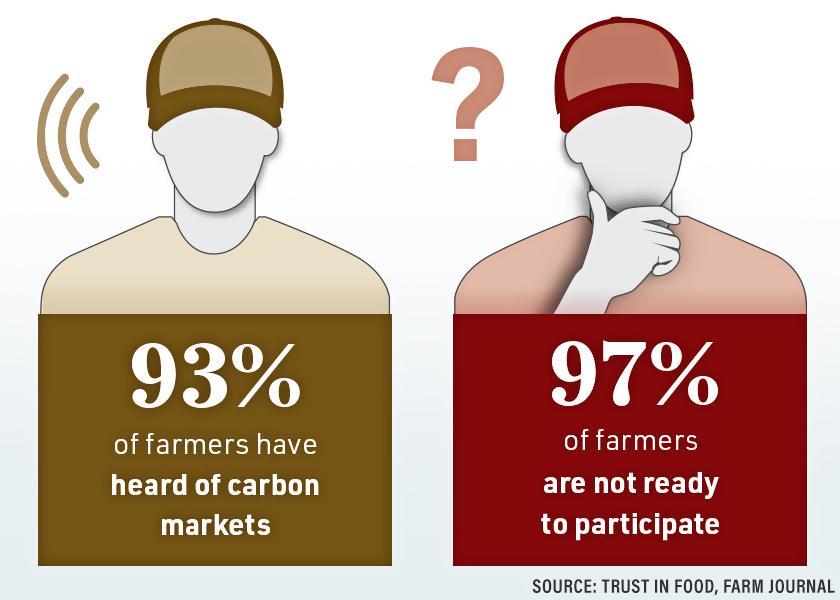3 Big Carbon Questions For Farmers

The future of voluntary carbon markets for agriculture is still coming into focus. As such, farmers continue to assess the landscape and weigh their opportunities.
1. ARE FARMERS SIGNING UP FOR CARBON PROGRAMS?
All programs require field-level data and the farmer’s ability and willingness to share data. Enrollment requires the intersection of interest, incentive and execution. As a result, a new term, “carbon curious,” is being used to describe farmers exploring the space.
The Purdue Ag Barometer started in 2021 asking about farmers’ interest in carbon sequestration. Jim Mintert, agricultural economist at Purdue University, says the number of respondents who claimed to engage in carbon discussions in 2021 and 2022 were between 2% and 5%. However, in August it jumped to 9%.
“We’re seeing an increase in the curiosity level, but not many people signing up,” Mintert says.
While the conversations have picked up, only 1% of those in August’s survey said they’ve signed a carbon contract.
2. WILL MY EXISTING PRACTICES QUALIFY?
Today’s carbon programs require a change in practice. So, companies with markets are looking to expand the pool of farmers who qualify.
One such company is Land O’Lakes and their sustainability business Truterra, which is working to build a wider funnel of farmers who could enroll in carbon markets and other new revenue streams.
“We know there are barriers to growers making practice changes to more of a regenerative approach,” says Jason Weller, vice president, Truterra. “Often, farmers are weighing the risk to the profitability in spending money and perhaps taking a yield drop. So, we thought how could we help share that risk?”
The company offers a $2 per acre incentive for first-time practice changes, such as planting cover crops, reducing tillage and more.
3. HOW MUCH CAN FARMERS BE PAID?
Each carbon contract outlines how farmers can be paid for a ton of carbon sequestered over a given time. Payment, terms, timing and other details vary by program, which leaves farmers weighing the benefit.
“At $10 dollars per ton, it’s not a very front-and-center topic,” says Ben Reinsche, owner of Blue Diamond Farming Company in Jesup, Iowa. “At $60 per ton, you have my full attention. If the potential is greater than $100 per ton, it’s a priority, and I really need a plan.”
Like all business-driven decisions on the farm, farmers are using a lens of return on investment.
Carbon Market Roadblocks
A study from Trust In Food, Farm Journal’s sustainable agriculture initiative, shows even the most carbon-conscious farmers see signs their participation in current market options would require investments of time, effort and resources without the needed returns.







